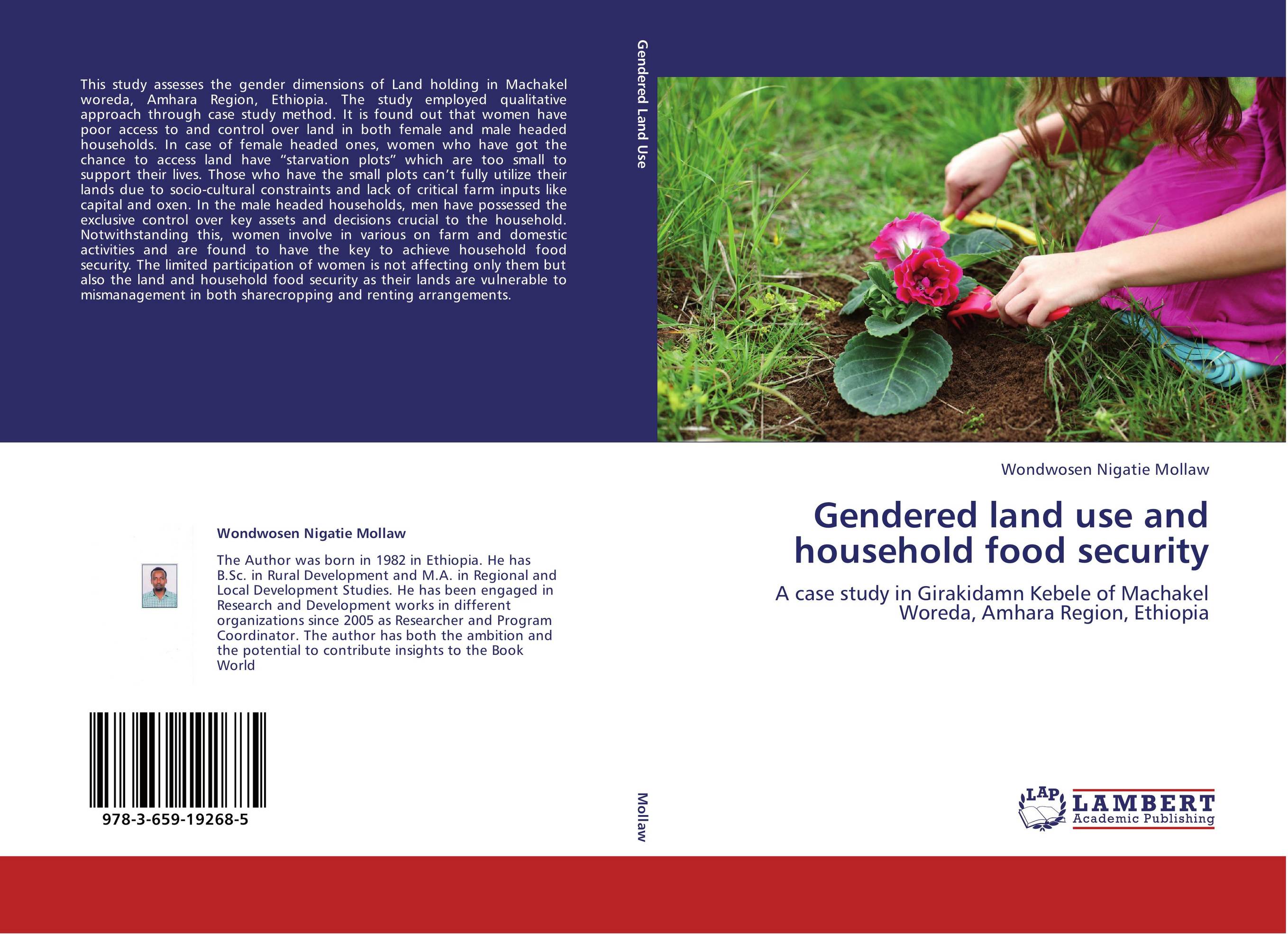| Поиск по каталогу |
|
(строгое соответствие)
|
- Профессиональная
- Научно-популярная
- Художественная
- Публицистика
- Детская
- Искусство
- Хобби, семья, дом
- Спорт
- Путеводители
- Блокноты, тетради, открытки
Gendered land use and household food security. A case study in Girakidamn Kebele of Machakel Woreda, Amhara Region, Ethiopia

В наличии
| Местонахождение: Алматы | Состояние экземпляра: новый |

Бумажная
версия
версия
Автор: Wondwosen Nigatie Mollaw
ISBN: 9783659192685
Год издания: 2012
Формат книги: 60×90/16 (145×215 мм)
Количество страниц: 116
Издательство: LAP LAMBERT Academic Publishing
Цена: 31779 тг
Положить в корзину
| Способы доставки в город Алматы * комплектация (срок до отгрузки) не более 2 рабочих дней |
| Самовывоз из города Алматы (пункты самовывоза партнёра CDEK) |
| Курьерская доставка CDEK из города Москва |
| Доставка Почтой России из города Москва |
Аннотация: This study assesses the gender dimensions of Land holding in Machakel woreda, Amhara Region, Ethiopia. The study employed qualitative approach through case study method. It is found out that women have poor access to and control over land in both female and male headed households. In case of female headed ones, women who have got the chance to access land have “starvation plots” which are too small to support their lives. Those who have the small plots can’t fully utilize their lands due to socio-cultural constraints and lack of critical farm inputs like capital and oxen. In the male headed households, men have possessed the exclusive control over key assets and decisions crucial to the household. Notwithstanding this, women involve in various on farm and domestic activities and are found to have the key to achieve household food security. The limited participation of women is not affecting only them but also the land and household food security as their lands are vulnerable to mismanagement in both sharecropping and renting arrangements.
Ключевые слова: women, Households, Land, Girakidamn and Redistribution



